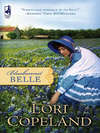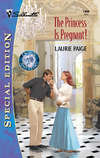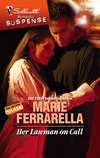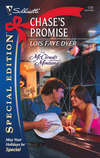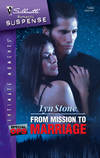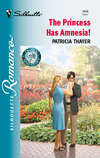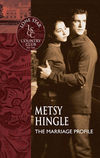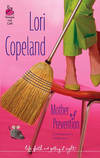Czytaj książkę: «Bluebonnet Belle»
Bluebonnet Belle
Lori Copeland
Refreshed version of
ANGEL FACE AND AMAZING GRACE,
newly revised by author.

To my lovely high-spirited granddaughter,
Audrey Lauren, who will be every bit as feisty,
charming, ornery, and give some lucky man a merry
chase before she enters the ranks of matrimony.
Contents
Prologue
Chapter One
Chapter Two
Chapter Three
Chapter Four
Chapter Five
Chapter Six
Chapter Seven
Chapter Eight
Chapter Nine
Chapter Ten
Chapter Eleven
Chapter Twelve
Chapter Thirteen
Chapter Fourteen
Chapter Fifteen
Chapter Sixteen
Chapter Seventeen
Chapter Eighteen
Chapter Nineteen
Chapter Twenty
Chapter Twenty-One
Chapter Twenty-Two
Prologue
Show me a man who suffers the monthly miseries, and I’ll show you a man bent on finding relief.
Women should show the same gumption when it comes to female complaints. And since April Truitt believed so strongly in her philosophy, she’d made up her mind to do something about it.
Anxiously fingering the printed envelope, she glanced around the general store. It was busy this morning. Faith Lawson was buying fruit jars to put up the remainder of her vegetable garden. Lilly Mason was counting out eggs, the amount to be credited to her account. Lilly had dark circles under her eyes this morning. Poor Lilly suffered unnecessarily.
If only the women of Dignity would listen to Lydia Pinkham, their woes would be over!
Mail the letter, April! Mail it!
Edging the envelope closer to the mail slot, April eyed Ellen Winters, the town postmistress. The silver-haired, robust sixty-year-old was busy sorting mail, glancing up occasionally with a smile.
“Nice morning, isn’t it?”
“Beautiful.”
“I’m always happy to see the heat of August give way to September.”
Nodding, April took a deep breath, shoving the letter into the slot. The missive disappeared into the empty receptacle with a soft whoosh.
Elly glanced up. “Sending off for another catalog, dear?”
Pretending she hadn’t heard her, April hurried out the front door, closing it firmly behind her. Exhaling a deep breath, she started down the walk at a fast pace.
Of course, once Elly saw who the letter was addressed to she would blab it all over town that Riley Ogden’s granddaughter was in cahoots with Lydia Pinkham. But April would deny it as long as she could. Grandpa’s heart was wearing out, and she didn’t want to upset him. She knew the townsfolk believed she was impulsive and didn’t think things through properly, but she liked to describe herself as spontaneous, impromptu—blazing a trail of new, exciting discoveries!
She believed in Lydia’s vegetable compound. Though no one outside the family knew the exact formula, it was said to contain unicorn root, life root, black cohosh, pleurisy root and fenugreek seed mashed up. The compound was touted to be the best thing that had ever happened to women, curing everything imaginable.
And she intended to help Lydia spread the good news about the wonder tonic. She wanted to encourage women to help themselves with their personal problems. She remembered her mother’s distress and tragic death because she’d listened to unsympathetic doctors.
Grandpa, along with most of the doctors, thought Mrs. Pinkham was a quack, but wasn’t that just like a man? Men didn’t suffer female problems, so they didn’t see what all the fuss was about. It was much easier to dismiss the subject with a shrewd wink and send the woman on her way.
Women had been getting short shrift for too long by men who had no understanding of their physical problems, showing little sympathy for complaints about backaches, nervousness and lack of energy. If a woman was happy, peppy and full of fun, a man would take her places, but if she was cross, lifeless and always tired out, well, he just wasn’t interested.
Doctors were too quick to offer surgery as a remedy for women’s functional disorders, invasive procedures that were inadequate, ill-advised, often too late, and usually creating even larger problems for the patient. Medical men thought that by removing the source, the problem would be alleviated.
When faced with irate women, physicians argued they were doing everything possible to find better, more acceptable alternatives, but April had her doubts. She was certain there had to be a better way to treat medical issues of mood problems, heart palpitations and hot flashes in the year of 1876. Some claimed that Lydia E. Pinkham’s Vegetable Compound provided relief for thousands!
April longed to inform Mrs. Pinkham in person about her decision, but Lynn, Texas, was nearly nineteen hundred miles from Houston, so a letter offering her assistance was more sensible.
It was done. Now all she had to do was wait to hear from Mrs. Pinkham.
Crossing the street, April nodded good-morning to John and Harriet Clausen, who were crossing from the opposite side. John tipped his hat pleasantly.
“Morning, Miss Truitt.”
April smiled. “Mr. Clausen. Mrs. Clausen.”
“How’s your grandfather?”
“Very good, Mr. Clausen. Thank you.”
“Give him our best.”
“I will.”
Wagon teams lined the streets of Dignity, Texas, this hot August morning. Truckmen loaded the long wagons, which were balanced on one axle and pulled by two horses harnessed in tandem. The carters wore long, loose frocks of heavy cloth or leather that were gathered on a string at the neck and fell to the calf, an outfit that dated back to the 1600s.
The men unloaded hogsheads of molasses, flour and brown sugar from the wagons they’d driven from Houston. They would haul back produce grown by the local farmers and wooden goods carved by artisans.
In the distance, sunlight glinted off sparkling blue waters in the port. The mercantile and livery were doing a thriving business this morning. The mouthwatering smells of cinnamon and apples drifted from Menson’s Bakery. Many a Dignity housewife would abandon her hot kitchen and buy one of Addy Menson’s apple pies for supper.
Striding past Ludwig’s Pharmacy, April paused long enough to tap on the front window. Beulah Ludwig glanced up, smiling when she saw April peering in at her.
Grinning, April mouthed, “I did it.”
Shaking her head, her friend made a face that clearly expressed her disapproval.
Dismissing the look with a cheerful wave of hand, April walked on. She didn’t care what anyone thought. When April Truitt believed in something as important to womankind, as exciting as Lydia E. Pinkham’s Vegetable Compound, then she had to support it.
Period.
She was committed.
Feeling surprisingly confident about the decision, she hurried toward Ogden’s Mortuary, sitting on the corner of Main and Fallow Streets. The funeral parlor had become her home when Delane Truitt, her mother, died seven years ago. Riley Ogden had taken his granddaughter in and raised her with stern, but loving, care.
At times he was prone to throw up his hands in despair, stating, “You, young lady, have too much of your father in you!”
But April didn’t take offense. She knew he thought the world of his son-in-law, Jack Truitt, and had grieved as hard as his daughter when Jack died in a train derailment at the age of thirty.
Someday April would marry Henry Long. Grandpa was finicky when it came to April’s suitors, however, which made telling him a difficult, and as yet unresolved problem.
Maybe Henry didn’t make her feel heady and breathless—not like that arrogant Gray Fuller did—but he was considered a good catch and they shared the same spiritual convictions—and the same philosophies about the Pinkham compound.
Right now, April planned to do what she could to improve women’s lot in modern society.
And the first step was to tell every woman she could about Mrs. Pinkham’s elixir.
Now. If only Mrs. Pinkham would accept her invitation and come to Texas and sell her marvelous product. April breathed a heartfelt prayer, then turned to go home.
Chapter One
Dignity, Texas
August 1876
“Ladies, ladies! Please! May I have your attention! There’s no need to shove! There’s plenty to go around for all!”
As Lydia Pinkham shouted to gain order, April stood behind a long table piled high with bottles of Lydia E. Pinkham’s Vegetable Compound, eager to sell to those brave enough to try the revolutionary new cure-all for female complaints.
“Sickness is as unnecessary as crime,” Lydia declared as the women pressed closer, trying to get a better look at the small brown bottles. “And if I may be so bold, no woman should be condemned to suffer when there is a curative readily available!”
Eyes widening, the women drew back as if a snake had bitten them.
“Ladies, ladies! Don’t be alarmed. The Pinkham Compound is a special formula of nature’s own elements,” Lydia explained.
Having accepted April’s offer, Mrs. Pinkham and her entourage had arrived late yesterday afternoon. The women of Dignity were about to be catapulted into the modern age. Lydia was clearly skilled in marketing. Offering her product directly to women seemed to be a shrewd sales tactic.
Ladies were hesitant to talk about such things, but the group who’d come today to hear Mrs. Pinkham’s theories on women’s health issues seemed eager to learn what the product would do. April was excited by the response and delighted to be part of the Pinkham team.
Lydia brewed her compound on a stove in the cellar of her home. The rows of brown bottles lined up on the table in front of April had labels detailing all the ailments the tonic could cure.
Lydia was usually too busy making the compound and writing advertising copy to conduct a rally herself, but she’d decided to take the campaign on the road to the Houston area.
April considered today a plus. Since Grandpa was unaware of her involvement, she was relieved when the small Pinkham entourage—Lydia; two of her sons, Dan and Will; Henry Trampas Long and April herself—had left Dignity to conduct sales in a small town closer to Houston.
So far, Dignity residents chose to overlook her involvement with Mrs. Pinkham in order to keep word of her activities from an aging Riley. The town mortician and cofounder was narrow-minded on the subject of Pinkham’s Compound.
“The perfect woman,” Lydia continued, “should experience no pain, but that individual would be rare indeed.”
Lydia Pinkham’s sad but compelling eyes met the gaze of every woman in attendance as she walked the length of the table, holding aloft a bottle of her vegetable compound high for all to see. Tall placards held by Dan and Will displayed copies of advertisements that had run in newspapers in Houston. The headlines decried the major complaints of women of the day. I Am Not Well Enough to Work, one stated, followed by the photo of a contrite woman standing before an angry husband who had no dinner waiting on the table and no clean shirts in the wardrobe. In the descriptive, Lydia E. Pinkham offered her “sympathy and aid,” but reminded readers that there was a ready remedy. Lydia E. Pinkham’s Vegetable Compound would, the ad stated, “restore to vigorous health the lives of those previously sorely distressed.”
Another claim boldly stated Operations Avoided; another, I’m Simply All Worn-out, followed by the picture of a woman who had collapsed from fatigue.
Yet another touted Social Tragedy—Women Who Brave Death for Social Honors, detailing how one very socially prominent woman suddenly leaped from her chair with a scream of agony, then fell insensible to the floor. The doctor told the victim’s husband that she was suffering from an acute case of nervous prostration, and hinted that an operation would be necessary.
Fortunately, a friend suggested Lydia E. Pinkham’s Vegetable Compound.
Surgery was avoided.
The din was growing louder, and Lydia raised her voice to be heard above it. April shifted from one foot to the other, wishing she’d worn more comfortable shoes.
The pandemonium only verified how badly women needed the Pinkham cure.
More than once during the brief time she’d been working for Lydia, April had wanted to sink right into the ground when pandemonium broke out. Sometimes containers were knocked over and broken as women clamored for a little brown bottle that would change their lives. Selling to customers who pushed, shoved and made it impossible to conduct business in an orderly fashion unnerved April.
But she believed in what Mrs. Pinkham was doing, so she wouldn’t think of giving up her job. She not only took pride in her work, but was earning her own money for the first time in her life. It gave her a sense of purpose and fulfillment.
As Lydia continued to lecture, Will Pinkham passed out the “Guide for Women” leaflets to ladies who were not as convinced as Mrs. Pinkham that their ailments should be openly discussed in a public forum, even among other females.
The babble was getting louder, and a couple of the attendees were red-faced.
Lydia continued, “I wish every woman who feels dissatisfied with her lot would realize that she is sick, and take steps to cure herself. Lydia E. Pinkham’s Vegetable Compound will make you cheerful, happy, eager to meet your husband’s wishes. Ladies! Once more you will realize the joys of your home! You will have found your true vocation—to be a devoted wife and loving mother!”
“It’s hard to believe that a compound could do all that!” a tall, raw-boned woman called from the back of the crowd.
Lydia, thin lips pursed, her face pale except for the two coins of high color on her cheekbones, leveled a look at the individual who would dare to question her claims. “Have you tried the product, dear lady?”
The woman shrank back. “Not yet.”
April readied copies of the four-page “Helps for Women” pamphlet that Lydia and her sons had printed to encourage sales.
Glancing up, April took an involuntary step backward when three women in the crowd voiced their skepticism about the claims, declaring them nonsense.
“It just doesn’t seem proper to talk about female complaints so boldly in the newspaper for everyone to read,” a deep voice interjected.
April mentally groaned when she saw Gray Fuller join the crowd. Having stationed himself conspicuously to her right, he stood, arms folded, a scowl on his handsome features as he listened to the sales pitch.
Dr. Fuller had made quite a stir when he’d moved to Dignity a month ago. Speculation ran rampant about him, and about why he’d chosen a small coastal town to establish a practice.
Then there were his looks.
No kind, comfortable country doctor, this man. Tall and lean, he wore his “city clothes” like one of those men in the catalog in Pearl Mason’s mercantile. Even Beulah said that the rich, dark brown hair that the young doctor wore just a shade too long was outrageously attractive. From what she’d heard, every single woman in a twenty-mile radius was making a fool of herself over Dr. Gray Fuller.
What is he doing here? April thought resentfully, squirming at the expectation that he might recognize her as the woman he’d seen at a distance at the mortuary. He and Grandpa had struck up an instant friendship, and for the past week visited nightly on the mortuary side porch. She purposely steered clear of them during the doctor’s nocturnal visits, preferring to keep a safe distance between her and any doctor. But still, he could have gotten enough of a look at her to associate her with Riley….
Slouching behind the table covered with bottles of compound, April prayed he wouldn’t recognize her.
Standing back from the crowd, Gray listened with growing skepticism as Lydia Pinkham make her sales pitch.
The majority of the women present this morning were older, he observed.
His eyes narrowed as he studied the young woman with honey-brown hair crouched down behind the table stacked with bottles of elixir. Her captivating eyes were the color of bluebonnets growing wild along the roadside, he decided. Studying her for a moment, he tried to place her.
He’d seen her before.
But where? She looked a lot like the elusive woman he’d seen in the shadows when he visited Riley at the mortuary.
Since coming to Dignity a month earlier, Gray had seen a sea of new faces. But this one…yes, he was sure he’d noticed her somewhere before.
Focusing on the speaker, he listened to Pinkham’s outrageous claims. He was relieved that druggists were reluctant to display the Pinkham posters or sell the compound. He was told many women refused to read the pamphlets because the explicit language embarrassed them.
It was a good thing. Women in pain, who had seen family members and friends debilitated by health problems, were vulnerable. Open to all kinds of shysters who promised relief.
It was ridiculous how someone could cook up a batch of weeds on the stove, bottle it and peddle it as a “cure.” More often than not such concoctions worked against normal bodily function.
Still, snake-oil salesmen were often successful. Public trust in the medical profession had dropped so low that women were beginning to abandon doctors in favor of charlatans such as Lydia who promised a non-surgical option.
He regarded Mrs. Pinkham and her kind as overzealous, pure and simple. She, and others like her, was a great part of the reason he’d decided to practice in a rural area rather than Houston.
If he could convince people to trust well-schooled physicians, then he could save lives. That wasn’t always possible, but he was dedicated to eliminating needless death.
Gray suspected that Mrs. Pinkham’s effort to sell her medicine was not born of a need to help the sick. The Pinkhams were victims of the financial panic of September 1873. After the banking house of Jay Cooke failed, credit had frozen, factories shut down, businesses folded and wage workers had faced a winter of starvation. Isaac Pinkham, Lydia’s husband, was one of the thousands who’d seen their speculative ventures fold. When the banking industry fell on hard times, Cooke’s had foreclosed and threatened to arrest those unable to pay their overdue bills.
Isaac Pinkham had collapsed under the threat of losing everything he’d spent his life accumulating. When the bank’s attorney, who turned out to be a distant relative of the Pinkhams, arrived to serve notice of foreclosure, the family had persuaded him to spare Isaac the embarrassment of arrest and jail because of his illness.
Isaac had not improved; Dan, one of the sons, had lost his grocery store and went into bankruptcy; son Will had given up his plans to attend Harvard and was working as a wool-puller.
Charlie, another Pinkham son, was working as a conductor on the horse cars, along with helping the family endeavor. Daughter Aroline, who had just graduated from high school, helped support the family by teaching.
The Pinkhams had given up their grand house in Glenmere and moved to a smaller home on Western Avenue in Lynn, and recently, with what little resources they possessed, begun their vegetable compound effort. Marketing the elixir was now a family venture. Everyone contributed to the enterprise. Dan and Will provided the brains and sinew. Lydia made the medicine. Charles and Aroline turned over their wages to help pay for herbs. And together, Will and Lydia had worked up advertising copy and put out relevant pamphlets. Even Isaac contributed. Sitting in his rocker, he folded and bundled the pamphlets for Dan to hand out.
Gray was told that at first Lydia had made the compound for friends. Before long women were coming from far away to purchase it. Now the family had expanded the manufacture of the elixir, and Gray was worried. Pinkham’s business was growing. More and more women were forsaking a visit to the doctor in favor of self-medicating with the Pinkham compound.
The newspapers were full of ads for remedies like Wright’s Indian Vegetable Pills, Oman’s Boneset Pills, Vegetine and Hale’s Honey of Horehound and Tar.
Natural remedies had gained wide popularity, and Gray wasn’t sure how the growing tide could be stemmed.
Today, looking around at the crowd, he felt his worries were well founded.
“Just try the compound for thirty days—”
“Excuse me,” Gray called out above the growing din, interrupting Mrs. Pinkham’s sales pitch. “Ladies…”
The sound level lessened enough for him to be heard.
“If you believe in potions, you’re placing your health in untrained hands! Your faith is better placed in educated physicians—”
He’s just like all the others, April thought, irritated.
A voice from the back interrupted. “My doctor says I have to ‘put up with pain’ because it’s ‘woman’s lot,’” she parroted. “Is that fair? Aren’t we deserving of more concern?”
That’s what Mama should have done, April thought. Put up with the heavy bleeding until she could find something like Lydia’s tonic. The memory of her mother’s surgery and ensuing death fed April’s anger at the situation in which many women found themselves.
“Of course you are,” Gray stated. “But you must be patient! We’re looking for remedies….”
“He’s as blind as all the others,” April murmured, her hands balling into tight fists. This arrogant man was going to be a thorn in her side, she could see that.
“My doctor prefers to talk to my husband, as if I didn’t have enough sense to know what he’s speaking about!”
“And it was one of those ‘educated physicians’ who let my mother die,” April blurted.
When Gray’s gaze swung to her, she wished she’d kept her temper in better control. Ordinarily she avoided drawing attention to herself, but today she couldn’t help it. He was a rude, boorish…man! She met his gaze, lifting her chin in defiance.
“I say we take responsibility for our own bodies,” a tall, heavyset woman declared. “I’m buying two bottles right now.”
The crowd shifted restlessly, and April watched the onslaught coming toward her with growing alarm. She braced herself, her gaze darting about for a quick escape if things got out of hand. Boxes of compound were stacked to her right, two bramble bushes grew to her left. Mentally groaning, she feverishly searched for an out. She’d have to make a break for the middle, and run straight at…him.
She was sure Gray Fuller would recognize her now. Grandpa might look like a genial old Santa Claus without the beard, but when he was riled he didn’t have that jolly old person’s mild temperament.
Far from it. The rotund octogenarian had a razor-sharp wit and a tongue to match.
April was jolted back to the present as the crowd bore down on her, attempting to squeeze between the table holding the vegetable compound and boxes of the product.
Aware that she wasn’t going to be able to get out of their way quickly enough, she braced herself for the attack.
A robust matron hit her sideways, knocking her into the heavily laden table. Stumbling, her hand flailing for support, April braced again as she was slammed from the other side. When yet another hard bump came from the rear, she fell against the table, knocking bottles of compound over in a domino effect.
Reaching out, she tried to save the batch of tonic from ruin, but the table legs collapsed, and it and the bottles tumbled to the ground with a thunderous crash of splitting boards and breaking glass.
The women kept coming, undaunted.
April was pushed forward onto the splintered table and broken bottles whose sticky contents were draining onto the earth below. She hit the ground with a thump.
Attempting to get up, she was knocked aside, whacking her head on a piece of wood. Pain shot through her temple and everything went blurry as she fell back, clasping her palm to her eye.
Silence fell over the crowd as all heads turned to her wilted figure.
“Oh, my!” a shrill voice exclaimed. “She’s fainted!”
April hadn’t, but she certainly wished she had. Not only had she humiliated herself, she was going to have a whale of a headache.
Moaning, she stirred ever so slightly at the feel of a cool hand on her cheek. She kept her eyes tightly closed, wishing everyone would leave her alone so she could just crawl away, unnoticed.
“Is she injured?”
“Oh, my, my.” A hand gently fanned her face. “Someone bring me a dipper of water!”
“Stand back!” another woman cried. “This man says he’s a doctor!”
April froze when she heard his voice. Drat. Now she’d really done it. Of course Dr. Fuller would offer his services!
“Someone get this table out of the way.” Gray Fuller waded through the crowd, issuing orders. “One of you ladies loosen her collar. Please, the rest of you stand back and give her some air.”
April felt the pressure of four manly fingers rest against her neck for a brief moment. A pleasant woodsy scent drifted down to her, and she wondered why he smelled so good when other men smelled like…like…well, men.
Embarrassed, she groaned in frustration at the situation she’d gotten herself into. Most of the women she knew would give their eyeteeth to draw the handsome doctor’s attention. She might feel the same if the circumstances were different. She’d hoped to be introduced to him at church, or a social function, not while lying on the ground surrounded by broken glass and brown, sticky goo.
Pressing his head to her chest, he pretended to listen for a heartbeat as he whispered, “You’re going to have to groan louder. They didn’t hear you.”
April’s left eye flew open, then quickly closed. “Wh…what?”
Lifting his head, he grinned.
Cracking her eye open once more, April looked up into a pair of startling dark green eyes set off by lashes so thick any woman would envy them.
His smile, focused directly on her, was decidedly wicked. The firm set of his jaw drew her. She had never seen that look on Henry’s face.
She mentally cringed. If they were handing out awards for good looks, Dr. Fuller would take the prize. His practiced masculine gaze ran over her lightly. She shivered, even though the day was blazing hot.
She felt a warm wave of breath in her ear as he repeated, “You’ll have to groan louder. They can’t hear you.”
Embarrassed that he had seen through her ruse, she mumbled through closed lips, “Are you sure?”
“Trust me.”
Of course. Trust him. The first thing he was sure to do would be tell Grandpa that she was helping the controversial Lydia Pinkham sell her medicinal elixir. And when Riley heard that, along with what had happened here today, he’d have a fit of apoplexy.
“Moan!” Fuller ordered quietly.
Complying, April rendered a loud, mournful wail.
“Stand back,” he demanded, rising to clear a path through the crowd. The women obediently stepped aside, murmuring approvingly among themselves about the man’s quick action.
“Is she all right, Doctor?”
“She appears to be coming around.”
The women oohed and aahed, their eyes anxiously trained on the young woman lying on the ground like a rag doll.
Assisting April to her feet, Gray led her to a nearby bench. She pretended to still be dazed, and if the truth were known, the good doctor did set her head spinning.
Although uneasy at the sudden physical intimacy, she kept up her pretense, wavering convincingly for the women who watched with open concern.
With the excitement over, the crowd began to break up. Most refused to leave without purchasing a bottle of Lydia E. Pinkham’s Vegetable Compound.
Henry Long rushed to April’s side, concern on his babyish features. “April, are you ill, darling?”
Patting Henry’s hand consolingly, she assured him she wasn’t, only a bit shaken up.
Lydia stepped over to ask if April had sustained any serious injuries. When told she hadn’t, she made her way back into the crowd, where Will and Dan were selling the compound as fast as they could dole it out.
When the area finally cleared, Dr. Fuller attempted to conduct a brief examination. “You’ve got a bump.” He touched her forehead. “Should make a nice bruise.”
“Wonderful,” she muttered, drawing a deep breath to clear her head. Something else to explain to Grandpa.
“Are you experiencing any pain?”
“No, and you’ve done quite enough, thank you.” April felt like a fool! Not only had she drawn undue attention to herself by speaking up like that, she’d created a scene that was sure to get back to Grandpa and all of Dignity before she did. Still, it wasn’t that unpleasant being administered to by Dr. Fuller. The feel of his gentle hand on her forehead lingered, and she reached to finger the spot.
“Ouch!” It had felt much better when the doctor touched the bump.
Gray’s brows lifted. “I’m trying to place you. Haven’t we met, Miss…”
“I have a common-looking face,” she said, standing up hurriedly. He’d been at the house several times, but she’d managed to evade him. His very demeanor frightened her—and doctors plain scared her. Still, he might have spotted her lurking in the porch shadows….
Regaining her bearings, she straightened her dress, smoothed her flyaway hair, remembered to thank him, and took off in the opposite direction at a hurried pace.
“If you have any blurring of vision, be sure and see a doctor…miss?”
She dismissed him with an absent wave. “I’m fine, really.”
He would remember where he’d seen her, and tell Grandpa. She might as well brace herself for the explosion.
Gray stared after her, watching the sway of her slender hips as she hurried along. He searched his mind, trying to recall meeting her. How could he possibly have encountered such a beautiful woman and not remember?
One thing was certain: the incident today would not be forgotten. It would take some doing to forget this woman.
Darmowy fragment się skończył.
